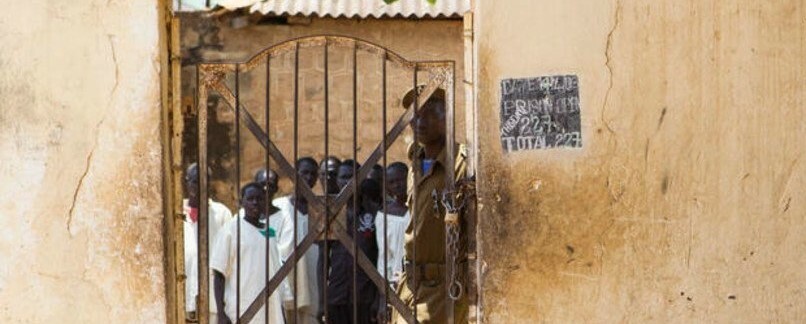The six teachers put in jail in Lakes State do not have money to hire a lawyer to defend them in court, their representative said.
This comes after State Governor Rin Tueny Mabor ordered the state minister of education to produce the teachers before a court of law in Rumbek town.
The six teachers initially detained at the Panda military barracks in Rumbek since mid-June were transferred to Rumbek Central prison last month without due court process.
Over 30 teachers from various secondary and primary schools in Rumbek were arrested after a strike. The striking teachers rejected their January and February salary arrears that did not reflect the 100 per cent increment in their salaries.
Last month, more than 30 teachers were freed, but six remained behind bars.
Speaking to Radio Tamazuj on Thursday, Adija Majoth, a representative of the jailed teachers, said police have finalized with investigations, and the imprisoned teachers are due to appear before court soon.
Majoth, however, said the teachers could not hire a legal representative over financial inability. “They don’t have a defense lawyer at the moment because the teachers do not have the financial capacity to hire a lawyer to defend them.”
Daniel Laat, the State Coordinator of the Community Empowerment for Progress Organization (CEPO), said they are contacting some people in Juba to find a legal team to defend the accused.
“These teachers have no financial capacity to afford the lawyer. They have no money, and hiring a defense lawyer is expensive. It would be good if some human rights bodies could show solidarity regarding this situation to hire a lawyer,” Laat said.
Martin Khamis, a police officer police, confirmed that the teachers’ case file had been forwarded to the Attorney General, who is expected to send the case to the court for trial.
“The case file is with the attorney general, and after the attorney finishes case studies, he would send it to the court. This is what is happening after the police investigation,” Khamis said.
Under the South Sudan constitution, any accused person has the right to defend himself or herself in person or through a lawyer of his or her own choice or to have legal aid assigned to him or her by the government where he or she cannot afford a lawyer to defend him or her in any serious offence.



